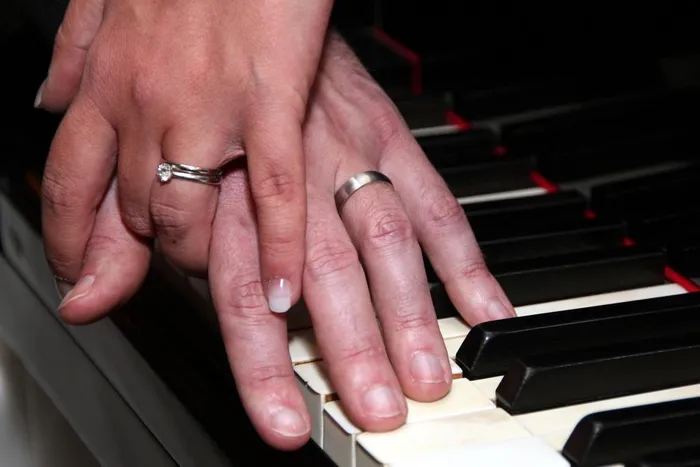Unpacking the ConCourt's decision giving men the right to take their wives’ surnames

Couples can now take whatever surname they want upon marriage after ConCourt ruling.
Image: Nicola Mawson | IOL
The Constitutional Court this week struck a blow to gender inequality in a case dealing with surnames.
In a unanimous judgment, the court ruled that several sections of the Births and Deaths Registration Act – which was promulgated in 1992 – are invalid.
The question before the court was “Does section 26(1)(a)–(c) unfairly discriminate on the basis of gender, by failing to afford men the right to assume the surname of women after marriage?”
Its answer was yes.
The parts of the legislation at issue concern changing names and surnames of South African citizens.
The effect of the ruling is that it no longer matters what gender you are – you can take your partner’s surname upon marriage.
The court also found there was no legitimate government purpose to prevent this from happening.
Two couples had taken the Ministers of Home Affairs and Justice and Constitutional Development to court because they wanted to change their surname in a way that wasn’t consistent with the norm.
In its judgment, the court specifically said “in the case of women, the effects of this scheme are far more insidious. It is not merely so that they are deprived of their right to have their surnames serve as the family surname where their husbands wish to take that surname”.
It added that the provisions “reinforce patriarchal gender norms”.
In the first case, the husband wanted to take his wife’s surname, and for their son to also use mom’s surname. In the second, the wife wanted to keep her surname, while her husband would take a double-barrelled name combining both.
Home Affairs turned both couples down flat.
The matter went to the High Court, where the ministers didn’t bother showing up. The High Court ruled in favour of the couples, declaring the restrictive sections unconstitutional, but suspended the declaration for two years while allowing the couples to change their names in the meantime.
The Constitutional Court has now confirmed that ruling. Home Affairs was ordered to pay costs.
IOL